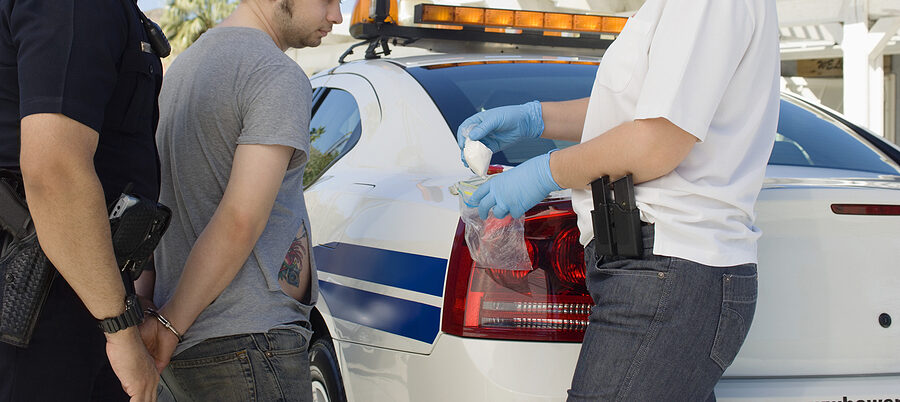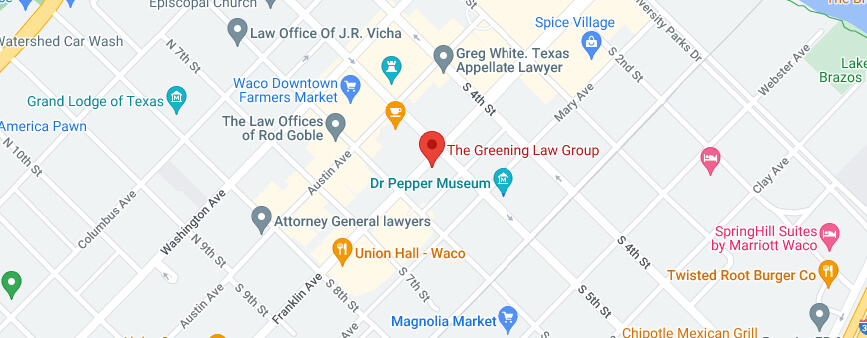You have just been arrested and you’re not sure why. What enabled the officer to pull you over and search your vehicle? Did the officer have probable cause or reasonable suspicion to pull you over in the first place? What do these terms even mean?
While you may hear both terms being used in a criminal case, they have different legal meaning, and thus different significance when it comes to the validity of a police stop and/or search.
Reasonable suspicion is the first mark a police officer must hit in order to legally detain you. At this point, police must have specific, articulate facts that a crime has been committed. Once it appears that a crime has more than likely been committed, the police officer has probable cause. What does this mean exactly? Keep reading to find out!
Reasonable Suspicion
Defined by the United States Supreme Court as “the sort of common-sense conclusion about human behavior upon which practical people . . . are entitled to rely.” Further, it has defined reasonable suspicion as requiring only something more than an “unarticulated hunch.” It requires facts or circumstances that give rise to more than a bare, imaginary, or purely conjectural suspicion that a crime has been committed, is being committed, or is about to be committed.
Reasonable suspicion allows police to detain a person briefly and investigate.
Stop and Frisk
In Terry v. Ohio, 392 U.S. 1 (1968), the Supreme Court held that a brief detention of an individual was permissible.
- The stop must be based on a reasonable, individualized suspicion based on articulable facts, and the frisk is limited to a pat-down for weapons.
- An anonymous tip, without more, that an individual is carrying a gun does not amount to reasonable suspicion. Florida v. J.L., 529 U.S. 266 (2000). A person’s refusal to cooperate is not sufficient for reasonable suspicion. Florida v. Bostick, 501 U.S. 429, 437 (1991).
- Conversely, A person’s flight in a high crime area after seeing police was sufficient for reasonable suspicion to stop and frisk. Illinois v. Wardlow, 528 U.S. 119, 124-25 (2000).
Cars
The same requirement of found suspicion for a “person” stop applies to stops of individual vehicles. United States v. Arvizu, 534 U.S. 266 (2002).
- The scope of the “frisk” for weapons during a vehicle stop may include areas of the vehicle in which a weapon may be placed or hidden. Michigan v. Long, 463 U.S. 1032 (1983).
Additionally, the police may order passengers and the driver out of or into the vehicle pending completion of the stop. Maryland v. Wilson, 519 U.S. 408 (1997). The passengers may not be detained longer than it takes the driver to receive his citation. Once the driver is ready to leave, the passengers must be permitted to go as well.
Probable Cause
Probable cause means that a reasonable person would believe that a crime was in the process of being committed, had been committed, or was going to be committed.
- Probable cause gives law enforcement officials the right to obtain a warrant, make an arrest, or search a person or property.
Search Warrant
In order to obtain a search warrant, the court must consider whether based on the totality of the information there is a fair probability that contraband, evidence or a person will be found in a particular place. Illinois v. Gates, 462 U.S. 213 (1983).
Arrest
In order to arrest a suspect the officer must have a good faith belief that a crime has been committed and the individual he is arresting committed the crime. Maryland v. Pringle, 540 U.S. 366 (2003). In Pringle, an officer was permitted to arrest three individuals in a vehicle where marijuana was discovered. The court reasoned that, even though the officers did not have evidence that any one of the three occupants was responsible for the drugs, probable cause existed as to all of them because co-occupants of a vehicle are often engaged in a common enterprise and all three denied knowing anything about the drugs.
An arrest is proper when it is based upon article 14.03 (a)(1) of the Texas Code of Criminal Procedure, which permits a peace officer to arrest a person without a warrant if the person is found in a suspicious place and under circumstances that reasonably show that such person has been guilty of some felony or breach of the peace. Goldberg v. State, 95 SW.3d 345 (Tex. App. 2002). Probable cause exists where the police have reasonably trustworthy information sufficient to warrant a reasonable person to believe a particular person has committed or is committing an offense. Guzman v. State, 955 SW.2d at 87; Amores v. State, 816 SW.2d 407, 413 (Tex. Crim. App.1991). Probable cause deals with probabilities; it requires more than mere suspicion but far less evidence than that needed to support a conviction or even that needed to support a finding by a preponderance of the evidence. Guzman, 955 SW.2d at 87
How a Lawyer Could Help You if You’ve Been Arrested
If the police did not have reasonable suspicion or probable cause to arrest or search you, then certain evidence cannot be used against you in court, no matter what that evidence shows. It is vital to have an attorney’s help if this is true in your case. Call The Greening Law Group, and let us help you!









